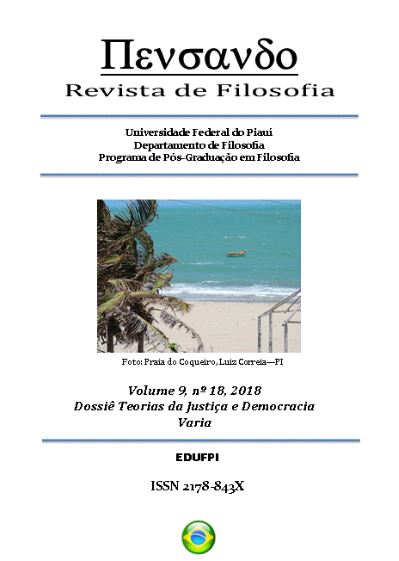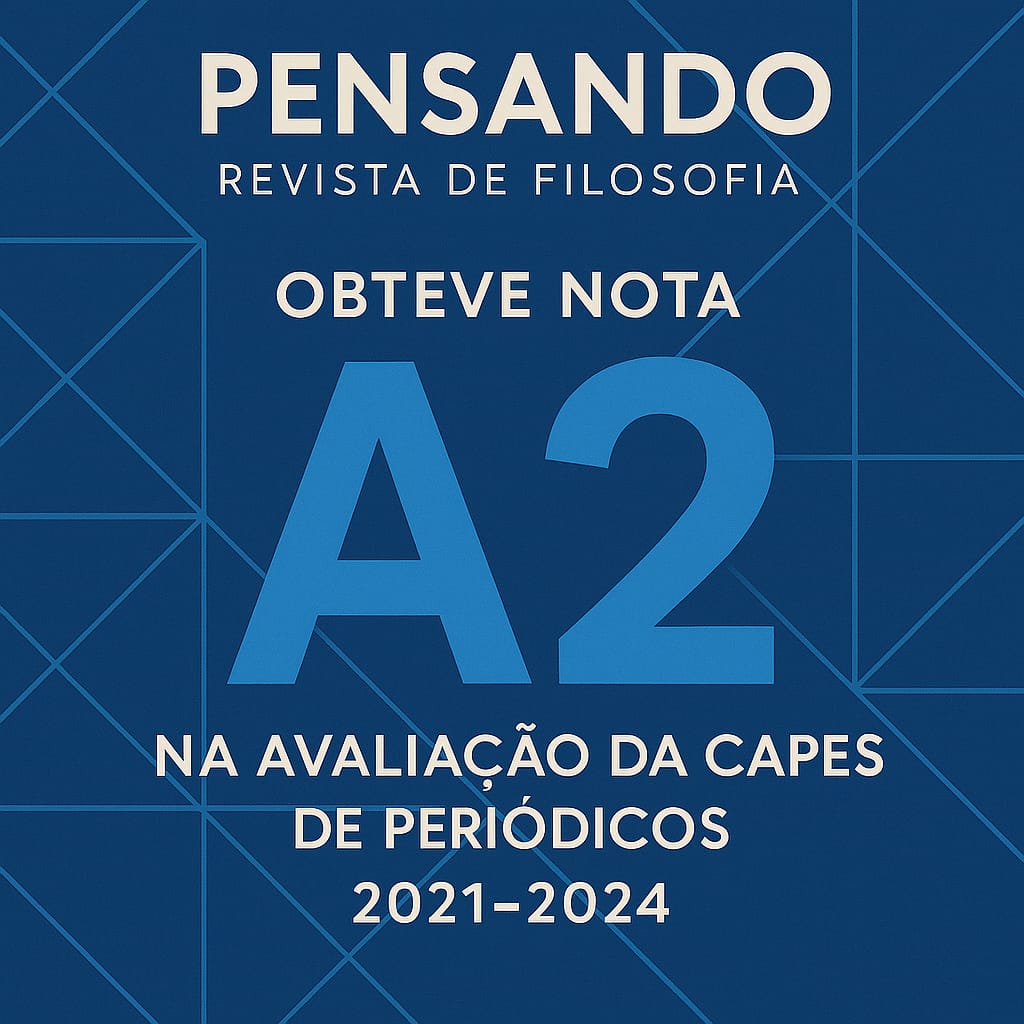PRIORITY OF LIBERTY UNDER NON-IDEAL CIRCURMSTANCES
DOI:
https://doi.org/10.26694/pensando.v9i18.7738Keywords:
Liberty, Priority, Non-Ideal Theory, Strict Compliance, RawlsAbstract
This work addresses the applicability of Rawls’s theory of justice in non-ideal circumstances. The goal, more particularly, is to assess the urgency role that Rawls and some of his interpreters confer to justice of fairness under non-ideal circumstances. In Rawls’s case, the urgency role means, in sum, that infringements to the first principle of justice (the basic liberties principle) must be treated as more serious and urging than infringements to the second principle. The paper’s main conclusion is that a “strong” understanding of that role has unbearable consequences, worse still than those entailed by the same relation of lexical priority between the two principles under (ideal) conditions of strict compliance. The problem is that, in circumstances of no strict compliance, scarcity of political resources may impose total neglect of the second principle.
References
Alexander, Larry, 1986, Fair Equality of Opportunity: John Rawls’ (best) Forgotten Principle, Philosophy Research Articles 11: 197-208.
Arneson, Richard, 1999, Against Rawlsian Equality of Opportunity, Philosophical Studies 93: 77-112.
Barry, Brian, 1973, Rawls and the Priority of Liberty, Philosophy & Public Affairs 2: 274-90.
Hamlin, Alan, and Stemplowska, Zofia, 2012, Theory, Ideal Theory and the Theory of Ideals, Political Studies 10: 48-62.
Hart, Herbert L. A., 1973, Rawls on Liberty and its Priority, University of Chicago Law Review 40: 534-55.
Pogge, Thomas W., 1995, Three Problems with Contractarian-Consequentialist Ways of Assessing Social Institutions, Social Philosophy and Policy 12: 241-66.
Rawls, John, 1993, Political Liberalism, New York: Columbia University Press
Rawls, John, 1999, A Theory of Justice, Cambridge: Belknap Press.
Rawls, John, 2001, Justice as Fairness: A Restatement, Cambridge: Belknap Press.
Sen, Amartya, 2009, The Idea of Justice, Cambridge: Belknap Press.
Simmons, A. John, 2010, Ideal and Non-Ideal Theory, Philosophy & Public Affairs 38: 5-36.
Stemplowska, Zofia, and Swift, Adam, 2014, Rawls on Ideal and Nonideal Theory, in Mandle, Jon, and Reidy, David A., A Companion to Rawls, Malden: Blackwell.
Valentini, Laura, 2012, Ideal Vs. Non-ideal Theory: A Conceptual Map, Philosophy Compass 7: 654-64.
Zanitelli, Leandro Martins, 2016, Institutional Perfection or Improvement of Imperfect Institutions? An Essay on the Methodological Status of Perfect But Unfeasible Institutional Regimes, Revista Latinoamericana de Filosofía Política 5: 1-30.

























